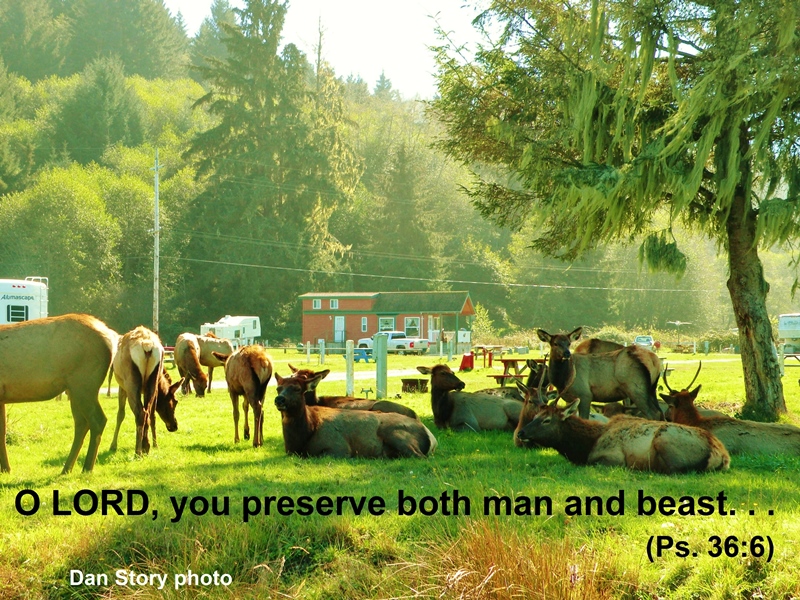
Part Five: “Would God Create Millions of Animal Species but Only Care about People?”
The typical attitude many Christians harbor toward animals is primarily utilitarian and pragmatic. They believe God created animals solely as human a resource: food, clothing, labor, experimentation, entertainment, and sport. As a result, animal rights has not been an important issue in the church, and little effort has been exerted to develop a biblical understanding of human/animal relationships—let alone a biblical perspective on God’s attitude toward non-human life.
The Bible teaches that animals are available for human consumption (Genesis 9:3) and other purposes. From a biblical perspective, people are not cruel to humanely raise animals for food, to hunt them to control overpopulation and to use them for necessary medical research. But the Bible also teaches all animal life belongs to God, not humans: “For every animal of the forest is mine, and the cattle on a thousand hills. I know every bird in the mountains and the creatures of the field are mine (Ps. 50:10-22; cf. Ps. 24:1). Nowhere does the Bible condone the abuse and exploitation that the human race has historically inflicted on animals. God is very much concerned for the wellbeing of the animals He created. A survey of God’s perspective on non-human life will drive this point home.
Psalm 36:6 tells us that God preserves, “both man and beast.” Numerous passages teach that God provides food and shelter so that wild animal can survive, propagate, and fulfill the purpose of their creation. Nowhere is this communicated more explicitly than Job 38 and 39 and Psalm 104. These passages mention specific animals and specific habitats that God prepared for individual varieties of animals. Job also points out that most events in nature take place beyond human habitats and awareness, and yet God observes all that occurs in the lives of animals. In a series of rhetorical questions, God asks Job, “Do you know when the mountain goats give birth? Do you watch when the doe bears her fawn? I gave [the wild donkey] the wasteland as his home . . . . Does the eagle soar at your command and build his nest on high? (Job 39:1, 6, 27). The self-evident answer to these questions is that only God is present to observe these events.
There are examples in the Old Testament of God instructing the Israelites to care for animals humanely. Proverbs 12:10 says, “a righteous man cares for the needs of his animals.” Jewish law includes provisions for the humane treatment of domesticated animals, including an enemy’s livestock (Ex. 23:4-5). On the Sabbath day, God instructed the Jews to allow their work animals to rest (Ex. 23:12), and not to “muzzle an ox while it is treading out the grain” (Deut. 25:4). Even wild animals were included in God’s instructions. He told the Israelites every seven years not to sow or harvest their crops, vineyards, and olive groves so that poor people and wild animals may eat what they leave (Exod. 23:10-11; Lev. 25:1-7). In short, God loves and cares for animals independently—but not equal to—his love and care for the human family. ©
How about Jesus? Did He show concern for wild and domestic animals? Would He support animal rights? This is the topic of next week’s blog post.
Very well written. I would suggest however, you provide the full written verse – along with the citation. I love reading this kind of stuff but enjoy it much more when I don’t need to look up the verses on a separate browser page. More continuity while reading.
Thanks for your comment, Mitchell. The problem is, it is recommended that blog posts do not exceed 500 words, or many people won’t bother to read them. (Some people only read just the notice I post on Facebook and fail to understand what I’m saying.) Some of my blog posts are somewhat longer, but I try to keep them below 500 words. This often means some editing, and not quoting lengthy Bible passages is one way to keep the word count down. But I DO appreciate that you take the time to do so.